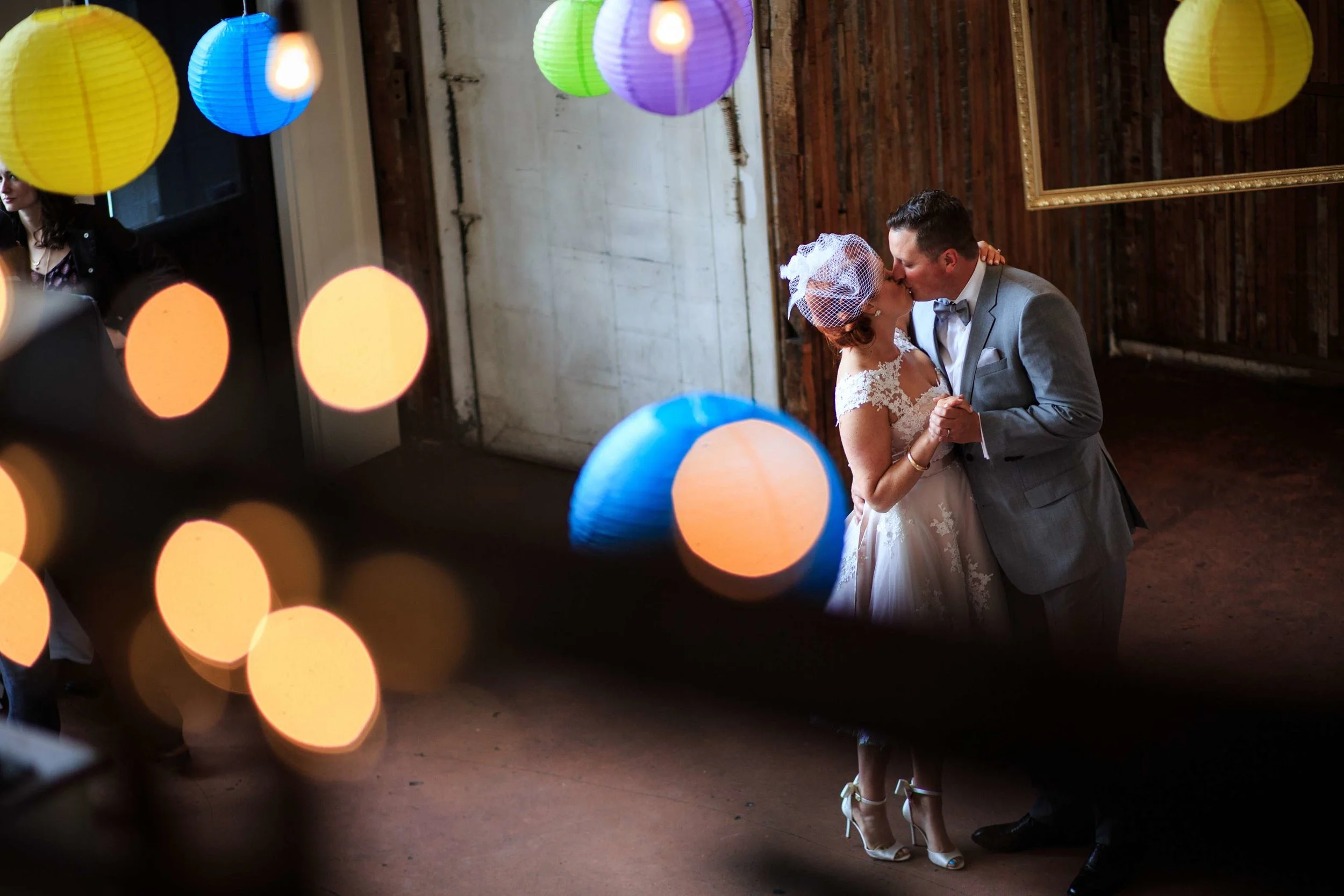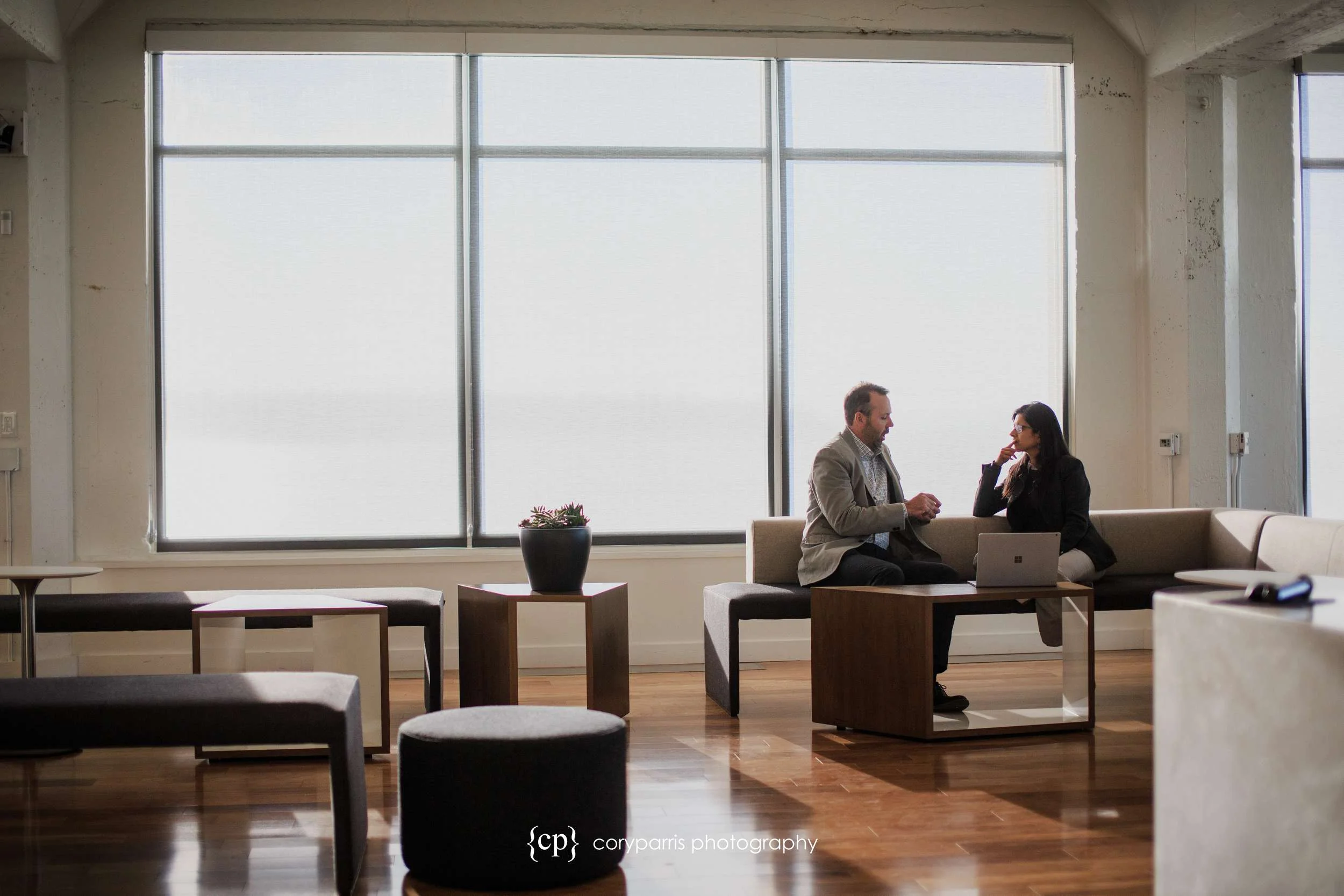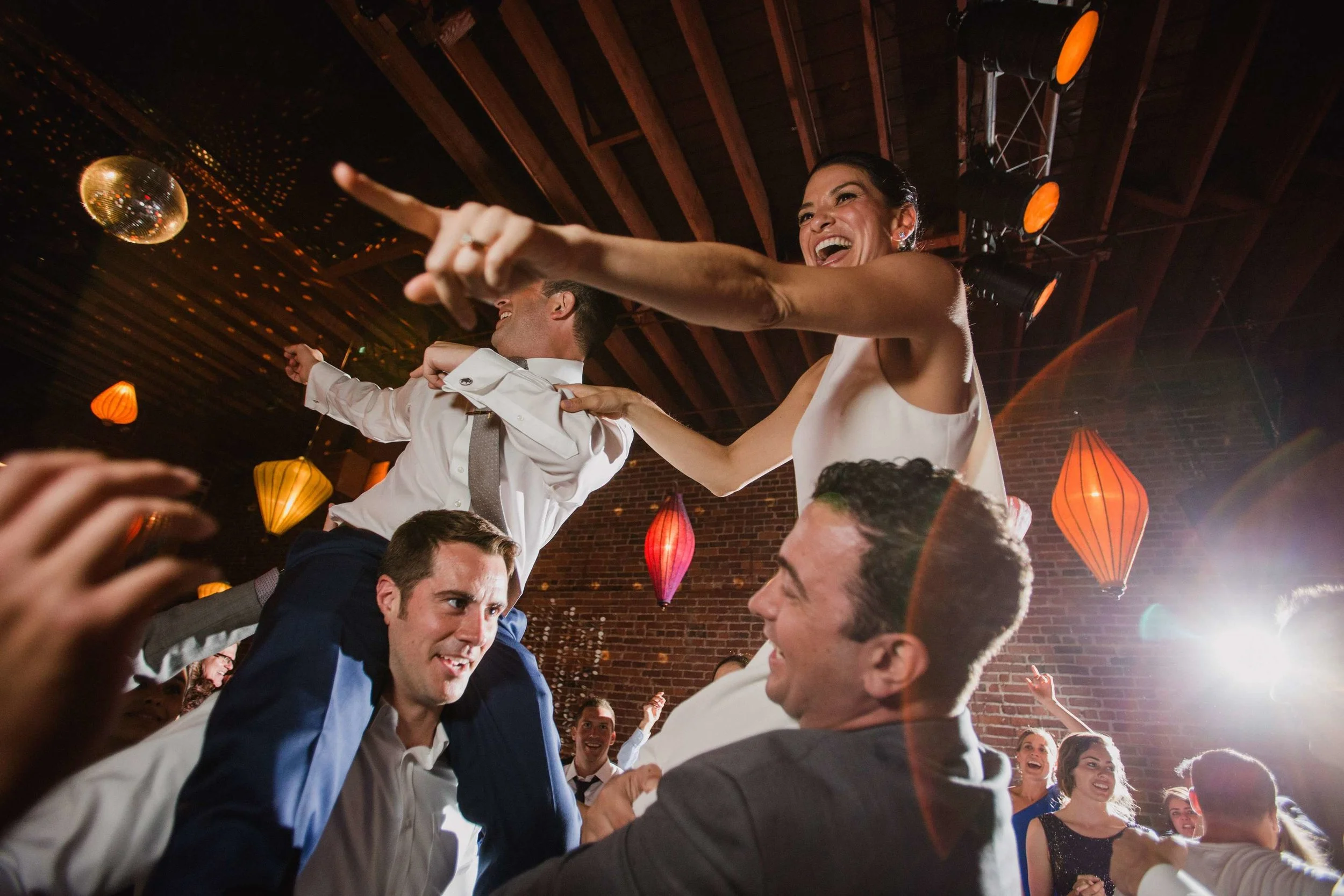How to Become a Successful Wedding Photographer
A creative wedding portrait taken at little wedding venue called Sole Repair Shop in Seattle
I have spent most of my life becoming a photographer and have been a full-time photographer for close to 20 years. One of the most common questions I get is how to become a successful wedding photographer. Which is funny because I feel like that is a target that is always moving. I can’t give a simple formula for success, but I can provide a few pointers that might prove useful.
I absolutely love my job and would recommend it to anyone. I can’t think of a more fun way to spend my working life than being a photographer. It has gotten me access to things like professional sporting events, celebrities, and great experiences. However, most people see just those fun parts of being a photographer, which have very little to do with your success.
Access to events is one of the great side benefits of being a photographer. This is Robinson Cano as he hits his 300th home run becoming just the third player to hit 300 as a second baseman. Very cool moment.
First, you need to become a business person. I read many years ago in a photography business book that there are three types of successful photographers. The first is a good photographer that is also a good business person. The second is a good photographer that hires a good business person. The third is a good business person. It makes for a funny statement, that isn’t quite accurate but gets a point across. When you own a business, you do far more than photography.
In an average week, I spend several hours photographing shoots or weddings. I spend many more hours culling, processing and packaging the images. I also spend time doing customer service via email, calls, and meetings. I spend time doing social media tasks nearly every day. I also work on my website for presentation, content and search engine optimization. I also do finances and taxes. If you don’t know how to read a balance sheet, you will need to learn. I spend about 15% of the time that I am working actually doing photography and 85% of it running a business. This is the number one reason why so many wedding photographers fail. They see wedding photography as getting to do creative photography, while most of the time, they are business people in the business of photography. The job of being a wedding photographer just didn’t meet their expectations.
Two coworkers having a meeting. It looks a little like a job interview.
Second, you need to develop some good interpersonal skills. To get 25-30 weddings per year, you will basically be participating in 50-70 job interviews each year. Which, for me as an introvert, would have scared me away if I had ever thought about having to talk about myself and my work in glowing terms. But it is a skill that develops with time and practice. I think the key is to care about the person you are talking to and make an effort to see the world through their eyes.
A related note is that you have to develop a thick skin. At first, everytime a potential client chooses someone else, it feels like a personal insult to you and your work. Which it is not. There are many reasons for a client choosing someone else. Price is the biggest (and sometimes it will be because yours is too low), personality, your images, your style, what you wore to the meeting, your age, your gender, your race, their finances, their biases, their parents, their venue’s recommendations, or any number of other things.
Silhouette with a flash and sunset.
Third, it’s all about the photography. You have to be able to produce fantastic work. You need to keep honing your craft and learning everything you can about photography, lighting, gear, and composition. You have to showcase how great of a photographer you are. I quite often hear new (and not so new) photographers complain, “I could have taken that image if someone gave me a chance”. Which may be true. So why did that other person get the chance and you didn’t to take some fantastic image on a mountaintop? It’s because that other person already had something on their website that made the client believe they could, while you did not. Or they didn’t find your site, or you don’t go to the same church. Don’t worry about the jobs you don’t get. Worry about showing in your portfolio the kind of photography that you want to do more. Show what you want to shoot.
Finally, realize that becoming a successful wedding photographer is usually a slow grind. It generally starts with doing something part time, then it slowly progresses to the point you have to choose between your day job and photography. It can take years, but I think it is worth it. I can’t think of another career that would allow me to have such a great life.
I also offer a mentoring program for people looking to become a professional photographer.





